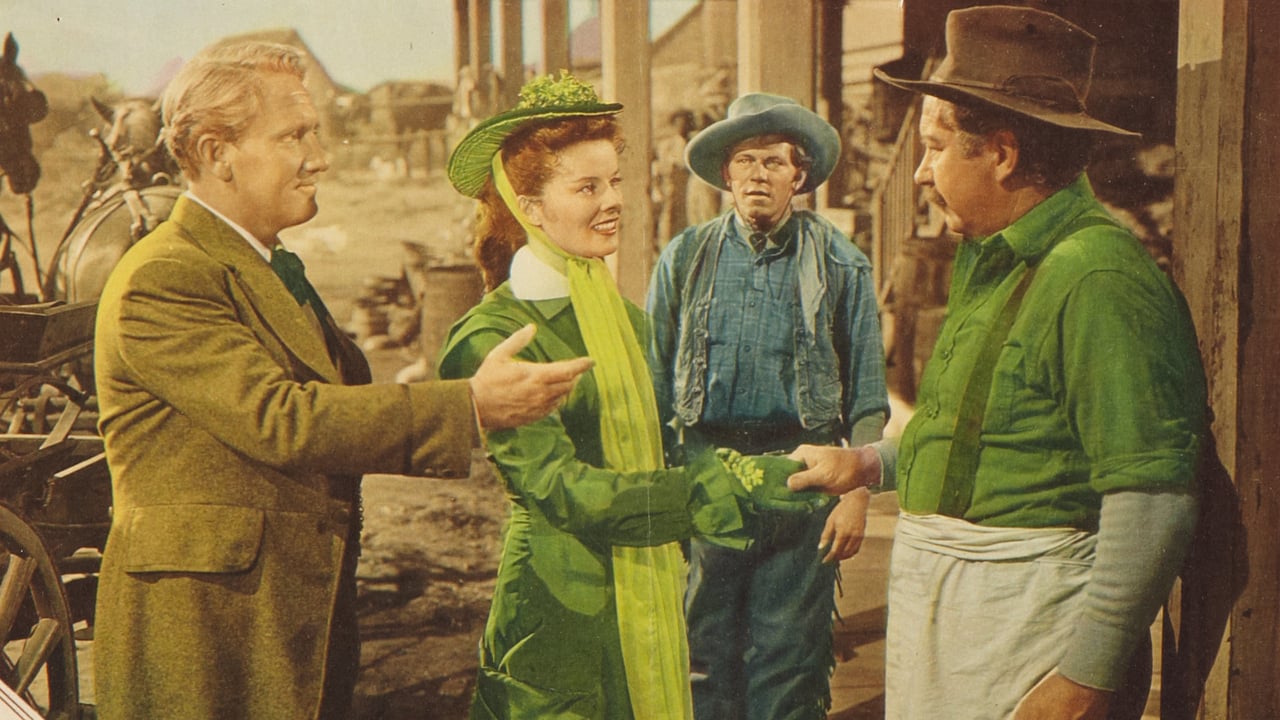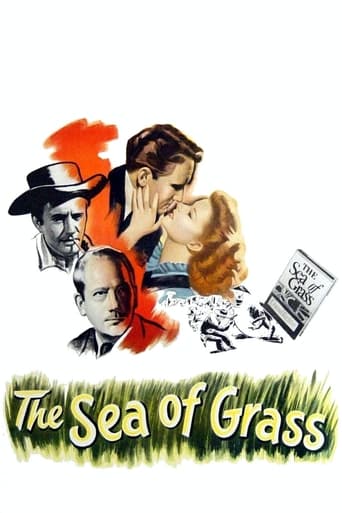IslandGuru
Who payed the critics
Sexylocher
Masterful Movie
Seraherrera
The movie is wonderful and true, an act of love in all its contradictions and complexity
Rio Hayward
All of these films share one commonality, that being a kind of emotional center that humanizes a cast of monsters.
dtruxaw-2
This film reminds us of the unbridled male chauvinism of the 1940's. Spencer Tracey's character ruins the lives of everyone around him with impunity. I am amazed that Katherine Hepburn agreed to do this role. Her "sacrifice" is sickening. The ending especially is truly mind blowing as she totally gives up all sense of self in order for Tracey's character to finally accept her back after years of exile. If she showed up at the end and put a bullet through his head it would have been much more fulfilling and would have rung with much more a sense of justice. If seen from a proper perspective, its a great study of abuse of power.
vincentlynch-moonoi
I'm updating my review of this film after reading the new biography of Spencer Tracy, and after spending several days out in the High Plains of eastern Colorado, western Nebraska, and western South Dakota.I'm surprised at the general negativity of most reviews here toward this film. I have a great deal of respect for this film, but I should say up front that I have long been an admirer of Spencer Tracy (second only to Cary Grant in my eyes). I think perhaps this film is too serious to be a "pop" choice. It really is one of the most serious movies I've ever seen. There is no frivolity in it, no humor, just straight dramatic acting. I could almost say that it's not a very "Hollywood" movie.The film begins with an intriguing musical score and settles down in a western-prairie town that seems more authentic than most. In some ways this appears to be just another cattleman - versus - farmer story, but I think it is much more than that. In the scene where Tracy talks about what the High Plains means to him...what he hears in it...well, it's a fine soliloquy. The movie is also the story of an Eastern woman - versus - the West. A story about two people who cannot adjust their views about life in order to come to an understanding.Another reviewer mentioned the lack of passion between Tracy and Hepburn on celluloid. I think that what you see between the two stars here, as well as in other films, is a love based upon deep respect, rather than sex. I'm not sure that it was an issue of age -- he was only 7 years older than she. But he had lived a rough life with his drinking, and seemed much older than she. So while there may not be passion between them on screen, there was a wonderful chemistry that is just as apparent here as in most of their joint efforts. Since beginning the biography, I have been watching all of the Tracy films generally available (and a few you can only find in places such as You Tube), and it's interesting to note that this is the film where Tracy is seemingly suddenly middle-aged and more distinguished looking in his appearance...and that's perfect for this role. As important is that by the mid-40s, he had mastered the ability to be subtle and show strength in that subtlety, and to reserve his powerful outbursts for those points in a film where they are really needed and appropriate.Melvyn Douglas is excellent here, although it's difficult to like his character much. Self-righteous in the beginning and out to get another man's wife. He mellows later in the film when he finds he has lost. In my view, one of his more impressive roles.One particularly strong scene is where the cattle stampede the farmer's land during a blizzard. Very profound, even though the scene does not directly involve any of the major players.There are a number of great character actors in this film. It's always a treat to see Harry Carey, and he was just wonderful in this film. And although I'm not always a fan, in this film I rather enjoyed the fine performance of a rather restrained Edgar Buchannan.A couple of minor criticisms. First, note how freely the characters walk out in the sea of grass. When I was out there, people and signs constantly warned me about rattlesnakes! And the sod house...I was in a real sod house this past summer...not nearly as "nice" as the one portrayed in the film. But I will say that the photography MGM did on-site was top notch in terms of portraying the sea of grass. However, actual on-location scenes with Tracy and Hepburn were apparently filmed in Arizona and New Mexico, though I'm guessing supposed location is eastern Colorado and Nebraska, since Tracy speaks of Hepburn having her baby in Denver.I think this is an excellent, wholly serious film which is well worth a second look. Highly recommended. And worth putting on your DVD shelf if you like serious movies.
moonspinner55
Young woman in 1880 St. Louis marries a cattle-baron who wields a powerful, occasionally unpopular and unfeeling hand. The couple settles into their New Mexico ranch-house, where she soon has a child, but the days and weeks of loneliness get to her and she shares in a flirtation with the smitten local attorney. Conrad Richter's novel becomes somewhat misbegotten vehicle for Spencer Tracy and Katharine Hepburn, though the stars do make valiant attempts to lend believability to these characters. Richter's story is full of stop-and-start melodrama, which nearly sabotages the central relationship (particularly since screenwriters Marguerite Roberts and Vincent Lawrence have given all the best dialogue exchanges to the supporting players, many of whom ultimately fare better than the leads). Melvyn Douglas works very simply with Hepburn and they have an easy rapport; Robert Walker (as the grown son Douglas fathered with Kate) brings along a nice swagger; Edgar Buchanan (as the cook) and Harry Carey (as the local doctor) have seldom been so endearing. It's difficult getting a handle on Tracy's reserved, unimpressed Colonel. Blank-faced and slack jawed, Tracy puts a great deal of thought into this complicated man but walls himself up from the audience in the process. Hepburn, in her early scenes, radiates nervous warmth and good will, but turning her into a black-wearing drudge filled with regrets was probably a mistake. Overlong, not particularly satisfying...yet the film has something. It's handsomely-made, reasonably well-paced and is certainly unusual coming from this high-powered star-duo. **1/2 from ****
dbdumonteil
In Michel Ciment's book " Kazan par Kazan" which is actually a very long interview (à la "Hitchcock by Truffaut"),the director recalled how painful the filming of "sea of grass " was for him:first of all,he complained for a subject like that SHOULD have been filmed on location and we can find little fault with his opinion;besides ,he had to use the Tracy /Hepburn pairing,two actors he admired but who were miscast here;"Tracy did not like horses and horses did not like Tracy either" .His wife should have been a frail young girl,which Hepburn was not :"she was clever but she was part of the high society.." The one thing Kazan seemed to appreciate was her crying;but reportedly Louis B Mayer watching the rushes complained: her tears does not flow from her eyes ,but from her nose;it looks like snot!" Among all my movies this is the one I like the least" he concludes.With hindsight,the film retains qualities and I do not think anyway that it is worse than the disastrous "last tycoon" which IMHO,is Kazan's absolute nadir.Hindsight displays its charms.Considering the limitations Kazan was working under,it's a wonder that the scene where Hepburn and Tracy are in front of the "sea of grass" listening to the noise and to the silence (of the Buffalos -now they are gone- and of the Indians -now in the reservations-) is really poetic.We can also save the scene of the storm ,where the farmer (David) has to fight his wealthy neighbor (Goliath).The historical context ,the end of the prairie of grass and the coming of the farmers ,is interesting.Robert Walker's character ,an unstable boy ,predates James Dean in "East of Eden" by eight years:too bad the part is underwritten.The fact that he was born of adultery is almost passed over in silence ,except for one scene or two.It is not my Kazan's favorite or even among my favorites,but it's a film to watch if ,like me,you are interested in the director's oeuvre..Like this? try this......"Giant" Georges Stevens 1955

